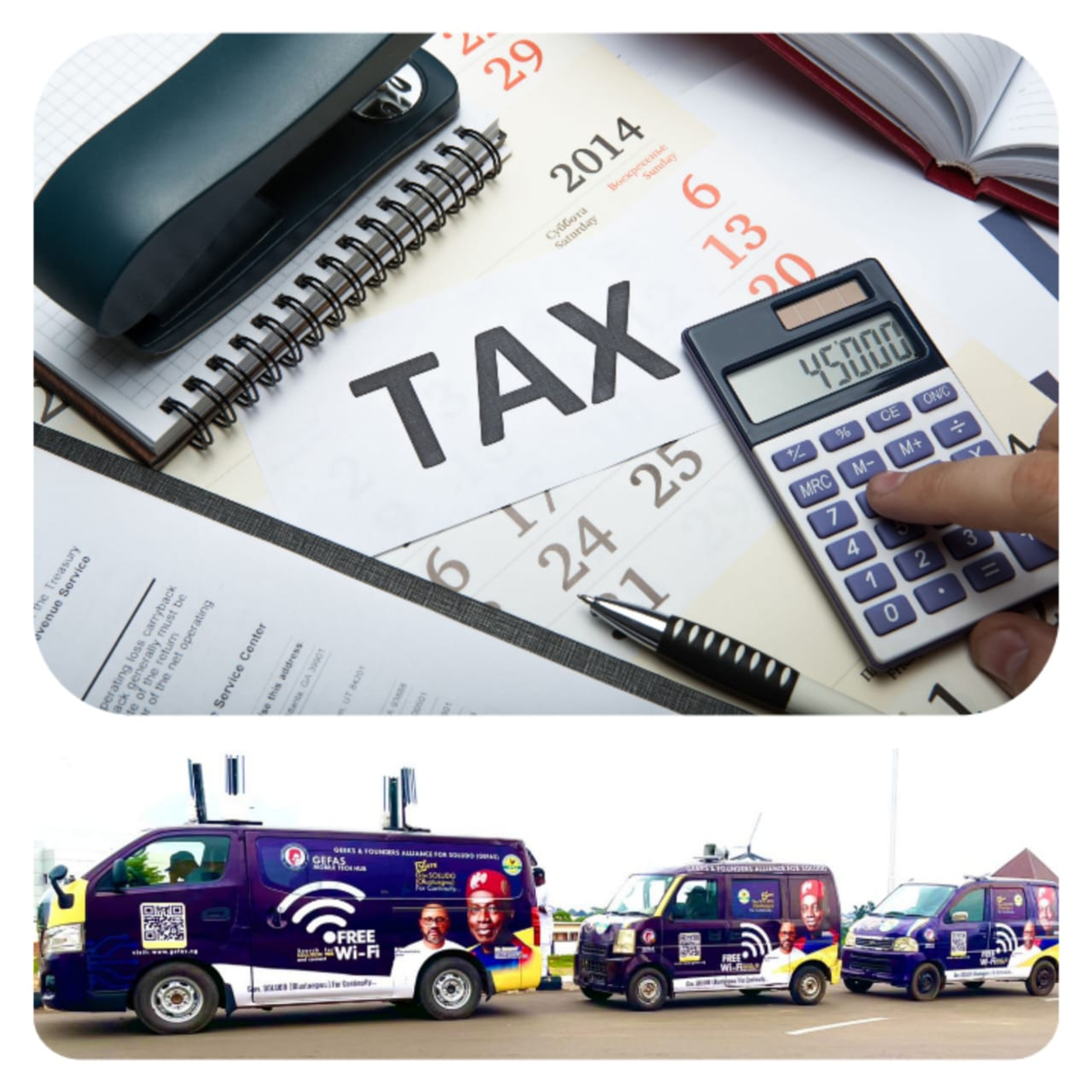
Let’s be honest, when you hear the word “tax,” your first instinct is to hold your pocket tighter

Nobody loves tax, because it’s not jollof rice. But with Soludo in Anambra, it is slowly becoming a necessary ingredient for the sweet future we all want. Let’s be honest, when you hear the word “tax,” your first instinct is to hold your pocket tighter. In the old days, paying tax in Anambra felt like playing football in the rain: confusing, messy, and sometimes ending in tears. You could pay one group in the morning, another in the afternoon, and still hear, “Oga, you never pay o!”. Tax collection in Anambra State was like a Nollywood movie, plenty of drama, many actors, and no clear ending. Multiple agents were busy collecting money, yet government revenue looked like a leaking bucket.
But under Governor Charles Chukwuma Soludo's administration (OLUATUEGWU), that wahala is gradually turning into a story of progress. Today, taxes in Anambra are no longer money disappearing into thin air; they are becoming the fuel driving the state from growth to real development, where even a blind man can see. The story has changed. Soludo brought in technology, digital payments, electronic records, and one-stop platforms. Traders in Onitsha and Nnewi now know who to pay, how much to pay, and even get receipts. At least nobody can shout “give us our balance” after collecting tax again.
With the system cleaned up, revenue started increasing. The state’s basket is no longer leaking. Even bus drivers, keke riders, and small shop owners are finding it easier to comply because the process is straightforward. But this is not just about the government shouting, “IGR has gone up!” The real gist is that Anambra is learning to stand on its own two feet, instead of waiting for federal allocation like a child waiting for pocket money.
Here’s the sweet part: the money collected is no longer lost in translation. You can literally point at where it is going.
New roads and erosion controls are springing up; traders can now move goods without swimming through potholes.
Programs like “One Youth, Two Skills” are training thousands of young people, because Soludo knows that handwork and skills are the new oil.
Healthcare centers are being upgraded, so that “take paracetamol” is not the only prescription in some villages. And yes, free Wi-Fi hotspots and digital hubs are appearing, because this is 2025, and even in Uga or Nsugbe, a student deserves to Google in peace.
What makes it even better is that people are beginning to see the connection between their taxes and development. That repaired road? Tax. That new market structure? Tax. That innovation hub where youths are coding apps? Tax.
Obviously, for the first time in a long time, citizens are smiling while paying, because they can point and say, “Na our money dey work there”. It’s like ordering food and actually receiving it hot, not cold.
Lastly, there has been a transition in the tax system from chaos to clarity, and from growth to development. The governor is showing that when taxes are handled with transparency and vision, everybody wins. So next time you pay your levy in Anambra, don’t frown too much. Just smile and say, “This money is building my road, training my neighbor, and giving my cousin free Wi-Fi”. Now, that is progress with a pleasant aftertaste. He is turning Tax Wahala into a Blessing in Anambra State.

Let’s be honest, when you hear the word “tax,” your first instinct is to hold your pocket tighter

According to the World Bank, Nigeria received over $21 billion in remittances in 2022, and Anambra, being one of the most entrepreneurial states, is a major beneficiary. These inflows surpass oil revenues in some years, making them one of the strongest forces behind local development.

As a growing child, most Nigerians speculated on the ways to turn trees to cash. We all dreamt that the big Mango tree behind our building somehow shed Naira notes instead of the annoying dried leaves. But obviously, you cannot turn trees to cash because, trees are just trees and cash is, well, a different story. This same mentality was how we all looked at waste. When a product becomes waste, it is supposed to stay as it is – waste! But, countries like China have crushed this mentality by turning waste to mass income boosters.

Last week, Nigeria witnessed yet another transfer of power at the highest level, marking the beginning of a new era with fresh faces entering the political scene. The events leading up to this moment were captivating, with hopes, dreams, agendas, and politicking shaping the outcome on May 29, 2023. The significance of this transition will undoubtedly be recorded in the annals of history and will greatly influence our future as a nation.

It takes grit, hard work, and unceasing resilience to build a sustainable company from scratch in Nigeria. This is a feat only a few have achieved, and the Chief Executive Officer of GVE Holdings, Ifeanyi Orajaka is one of the selected few. As part of the Anambra State Investment Promotion and Protection Agency's (ANSIPPA) mission to promote investors operating in the State, the team had an interview session with the young CEO to better understand how he has managed to thrive in an uncommon sector despite the many challenges the global economy presents.